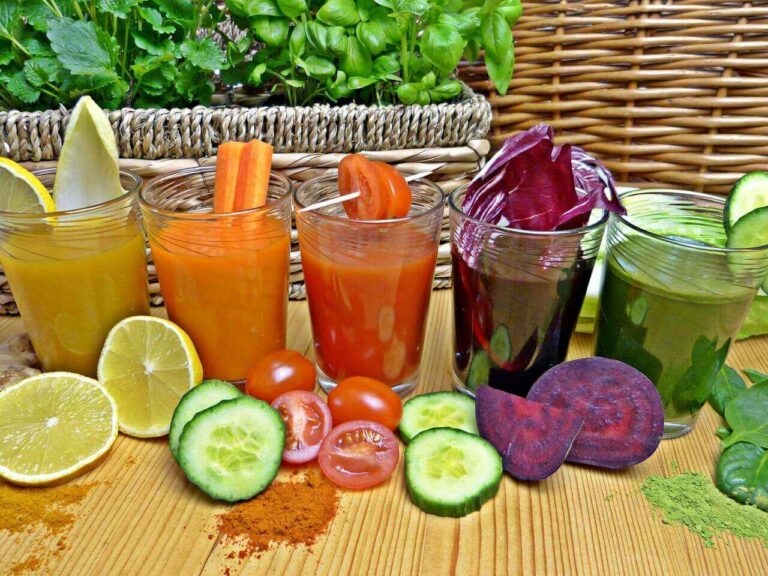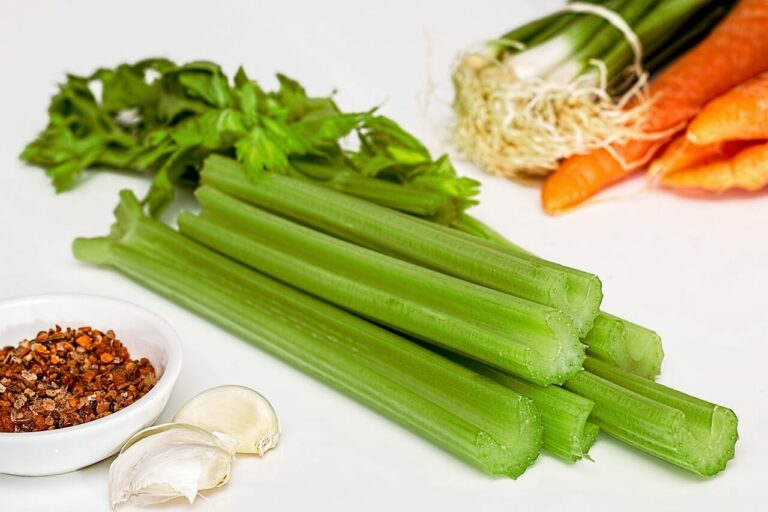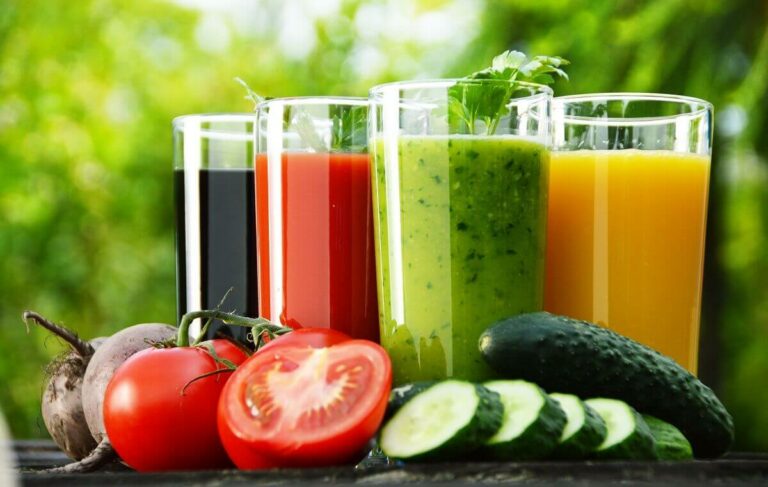Aloe Vera Water: Benefits & Safety + How To Make Your Own
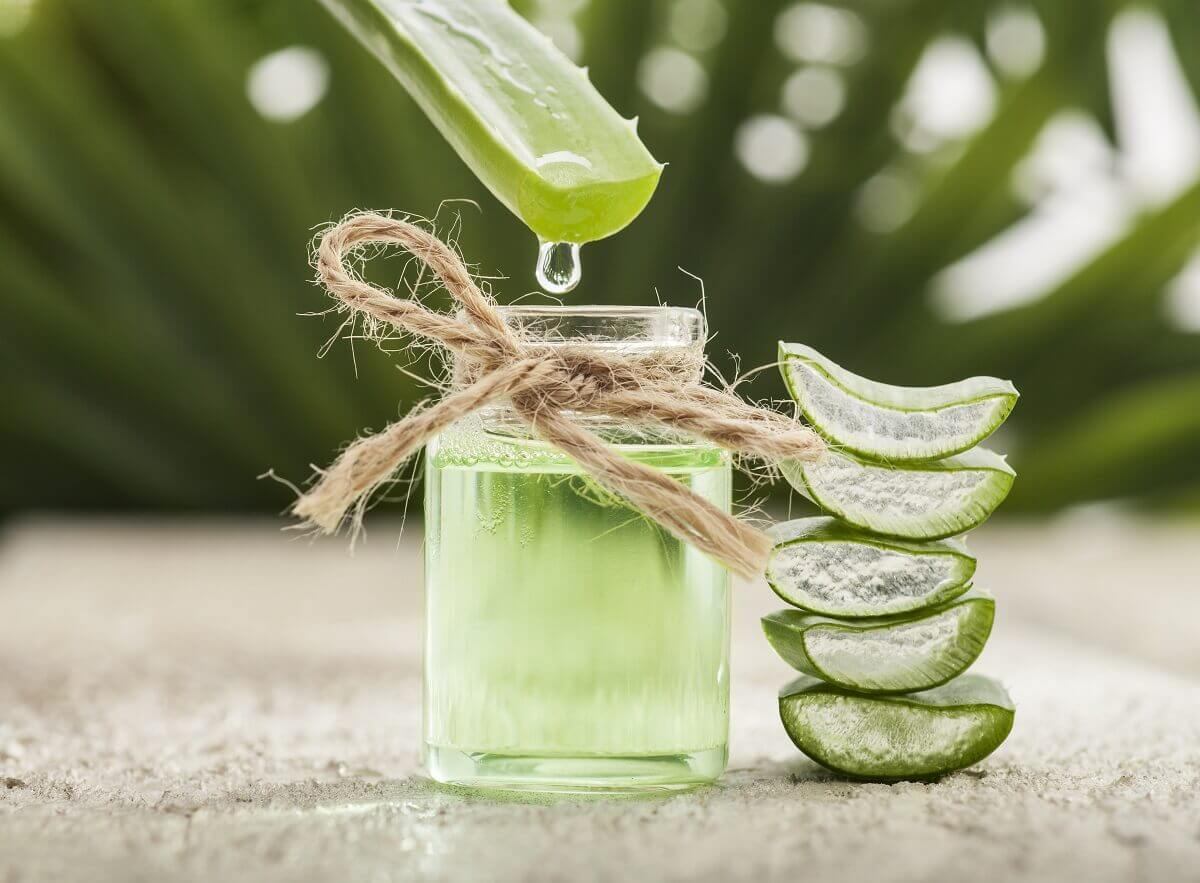
There are many aloe plants, but only aloe vera can benefit you inside and out! Aloe vera is an edible plant found all over the globe despite being a native of the Arabian Peninsula. This shrubby, prickly plant has been cultivated for its calming gel for thousands of years and comes from the genus Aloe.
Aloe vera gel has health benefits beyond simply treating skin problems. If you mix the gel with water, it produces a refreshing drink that can help with digestive problems like constipation, and it also helps to keep blood sugar under control.
But is aloe vera juice as good as people say it is? Find out more about drinking aloe vera by reading on.
Contents
- 1 Studies on the Aloe Vera Juice Benefits
- 2 Aloe Vera Water: Nutrition
- 3 Studies on the Health benefits of Aloe Vera Juice
- 4 What Is the Right Amount of Aloe Vera Water to Drink?
- 5 Make and Drink Aloe Vera Juice at Home in Minutes
- 6 What Problems Can Aloe Vera Juice Cause?
- 7 Homemade vs. Bottled Aloe Vera Juice
- 8 Who Shouldn’t Drink Aloe Vera Water?
- 9 How to Make Aloe Vera Probiotic?
- 10 How to Make Aloe Vera Juice for Acid Reflux?
- 11 Aloe Vera Juice Constipation
- 12 FAQ
- 13 Conclusion
Studies on the Aloe Vera Juice Benefits
Some research has been done to help figure out what kinds of health concerns aloe vera drink might help with. But remember that aloe vera drink or juice is not an official treatment for the following conditions, and it may not even help some people with their symptoms. Talk to your doctor or nurse so that they can figure out the best treatments for you.
Aloe Vera Water: Nutrition
Pure aloe vera juice can help with nutrition, reduce symptoms of acid reflux, fight free radicals, and kill bacteria. Aloe vera juice is good for your health because it contains more than 200 active ingredients from the plant, which have several health benefits. These ingredients include anthraquinones, vitamins, minerals, enzymes, amino acids, natural sugars, and fatty acids.
A single 8-ounce aloe vera juice contains only about 20 calories and almost no carbohydrates. There is no fat or protein. In addition, aloe vera juice contains magnesium, calcium, and beta-carotene.
Of course, we are talking here about pure aloe vera juice-the kind you make yourself at home. Many commercial brands of aloe vera juice have added sugar to make them taste less bitter. This can easily increase the number of calories from 70 to 130. So always check the label to see how much sugar is in your drink. Some might even have the same amount of sugar as a regular soda.
Aloe vera juice is often sold as a remedy to help keep you regular and to improve your digestive system. It might also be sold as an anti-inflammatory for the skin or to lower blood sugar levels. For health-conscious people, aloe vera juice is an excellent alternative to sugary drinks and fruit juices.
Studies on the Health benefits of Aloe Vera Juice
Some research has been done to help figure out what kinds of health issues aloe vera juice might help with. But remember that aloe vera juice is not an official treatment for the conditions listed below, and it may not even help some people with their symptoms. Always consult your doctor or a nurse so that they can figure out the best treatments for you as an individual.
Fatigue and Tiredness
The vitamin C in aloe vera juice helps boost your immune system to fight off illnesses, but it also has anti-inflammatory properties that help combat fatigue and tiredness.
Digestive Health Conditions
The gel and juice from the aloe vera plant contain fatty acids that help keep the colon, small intestine, and stomach running smoothly. This has been linked to better digestion. Drinking aloe vera juice and aloe vera syrup might also help with chronic irritable bowel syndrome (IBS) and acid reflux. A meta-analysis found that people with IBS improved considerably when they took an aloe vera juice drink as opposed to those who only took a placebo.
Laxative Effects
It is long known that aloe vera has a laxative effect (which helps with constipation), and this is because of the outer pulp of the aloe leaves, known as latex. This is the part of the plant where the anthraquinones called aloin are found. These are probably what cause the laxative effect. If you want a juice that can help relieve constipation and act as a mild laxative, look for one made from aloe vera gel and latex, often called “whole leaf.” Always read the labels or ask your pharmacist to be sure.
Heartburn
In a randomized, controlled research of 79 people, those who took aloe vera juice once a day had similar relief from heartburn symptoms as those who took prescription heartburn drugs.
Skin Conditions and Reduced Inflammation
Studies show aloe vera may help heal epithelial tissues and skin after damage. In addition, the aloin in aloe has been shown to reduce inflammation, which is another reason why aloe is good for the skin. But bear in mind that most studies on the benefits of aloe vera for the skin have been done on the exterior application of aloe vera. This is because we need to learn more about what happens to the skin when you drink aloe vera water.
Diabetes
Studies done in the past found some evidence that aloe vera juice may help people with Type 2 diabetes lower their high blood sugar and cholesterol levels. However, it should be noted that no randomized clinical trials have been done to confirm these benefits on diabetes and that these studies were performed on animals or were simply observational. One systematic review from 2016 found that aloe vera may help control blood sugar, but the evidence isn’t strong enough to claim these benefits altogether. More research is needed before any recommendations can be made.
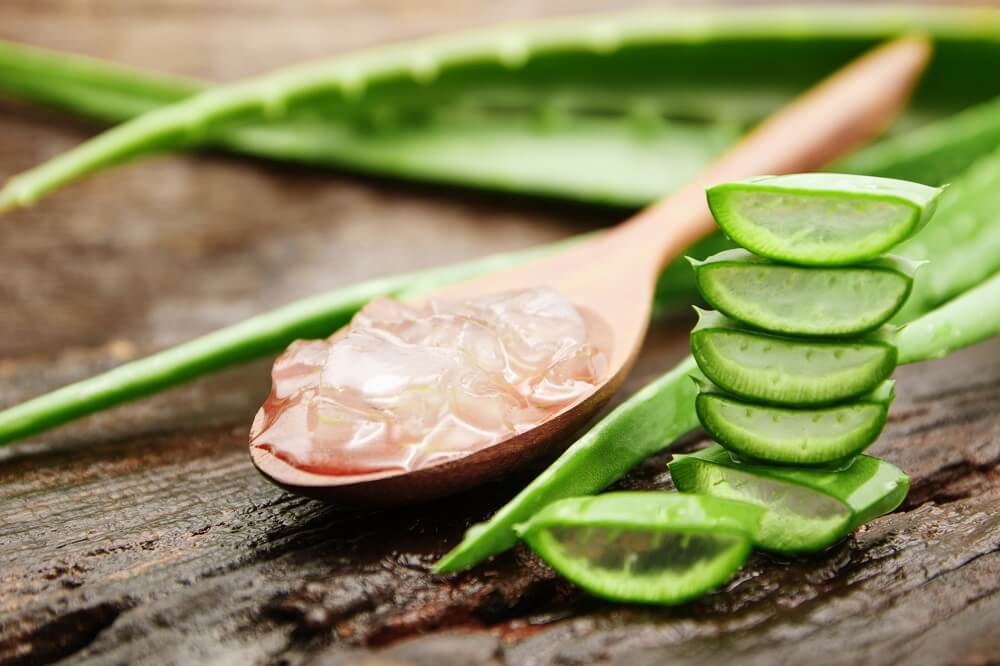
What Is the Right Amount of Aloe Vera Water to Drink?
The Food and Drug Administration (FDA) has approved aloe vera as an ingredient in food, but food-grade aloe vera has not been tested as a medicine or treatment. In other words, aloe vera juice is not regulated, and when you buy it, you cannot necessarily be certain of its strength, purity, or safety. Of course, this makes it hard to figure out how much aloe gel, latex, or aloin you should take since each bottle may have a different amount. The food industry has set a limit of 10 parts per million (ppm) for the amount of aloin present in aloe products meant to be consumed, like aloe juice. However, the amount of aloin in a product does not have to be listed on the label.
The National Institute of Environmental Health Sciences says there is very little information about how much aloin is present in aloe vera products. Still, most liquids have less than one ppm. Unfortunately, this also makes it hard to know how much to drink to keep you regular.
Make and Drink Aloe Vera Juice at Home in Minutes
We’ve put together this quick guide on making your aloe vera juice. It’s super easy, and you don’t need fancy equipment or ingredients.
Aloe Water Recipe
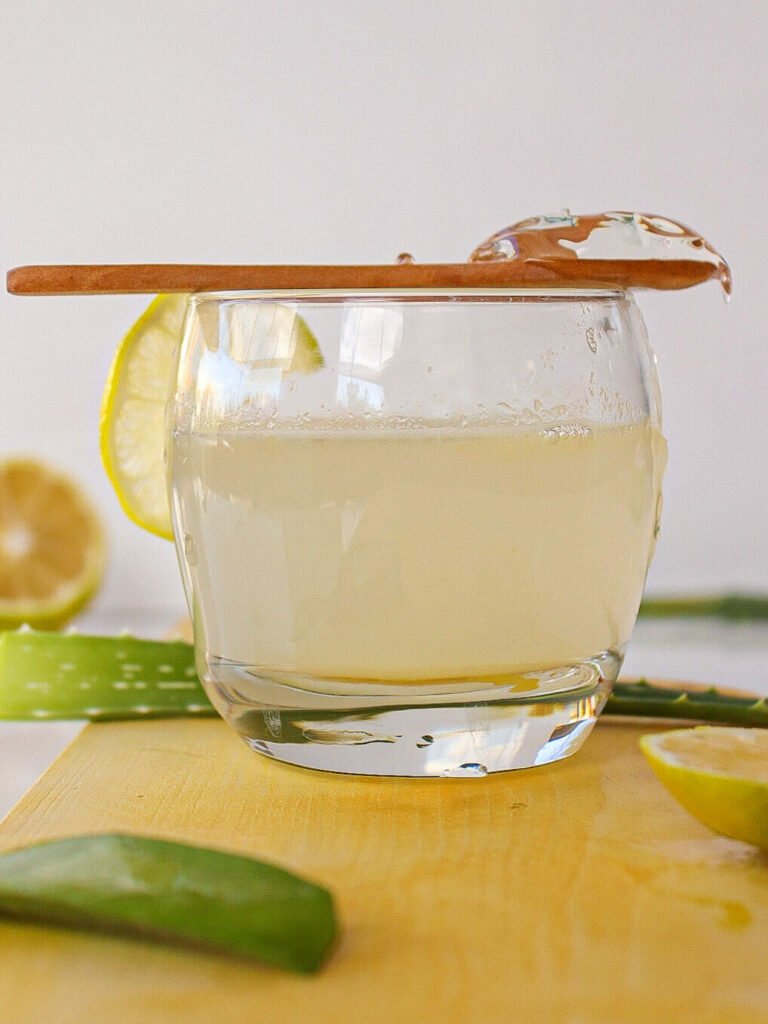
Ingredients:
1/2 large aloe vera leaf
Two limes, juiced (optional)
4 cups of water
Directions:
1. Make a slit through the middle of a big aloe vera leaf.
2. Use a sharp knife to remove the skin gently. Take care when doing this since the aloe leaf will become slick when wet. Discard the peeled skin.
3. To mitigate some of the astringency of the aloe gel on the remaining pulp, give it a quick rinse.
4. Put the aloe vera into a blender once peeled and cleaned. Add the freshly filtered water, lime juice, and any sweetener.
5. Create a juice by combining the water and aloe in a blender.
Based on test-tube research, the aloe plant is believed to have anti-inflammatory properties. These anti-inflammatory properties are linked to polyphenols, an antioxidant that fights free radicals and improves skin condition.
What Problems Can Aloe Vera Juice Cause?
Since aloe juice makes you go to the bathroom more regularly, you should only drink a little at once. Drinking too much could hurt your stomach, which could be bad for the kidneys.
One study examining aloe’s effects found that drinking too much aloe juice can cause diarrhea, low potassium levels, kidney failure, and sensitive skin reactions. However, aloe vera juice in small amounts is probably safe to drink. On the other hand, the International Agency for Research on Cancer with the World Health Organisation says that aloe vera whole leaf extract might be linked to cancer.
The FDA says it is no longer generally accepted that taking aloe supplements as a laxative is safe and works. However, one should remember that this ruling was linked to oral medication, where the quantities are different from those found in aloe vera juice.
So, before using aloe juice as your go-to laxative supplement, talk to your doctor or pharmacist.
Homemade vs. Bottled Aloe Vera Juice
Recently, flavored aloe vera juice has become all the rage. As a result, a broad array of pre-made options for aloe vera juice have begun appearing on the shelves of grocery stores and pharmacies. But before you go and buy that aloe vera juice in a bottle, make sure you check the list of contents first. The word “aloe vera juice” conjures up images of a transparent fluid drawn straight from the rich source of some pristine garden, but this is generally not the case. The water in aloe vera juice is taken directly from a municipal water supply, like the water from your tap.
When it comes to aloe vera juice, those bottles may also contain too much sodium, sugar, or artificial sweeteners to be considered healthy options for someone battling kidney disease.
The good news is that making your aloe vera juice at home is one of the easiest things you can do. You’ll enjoy every bit of flavor and all the health benefits without worrying about extra sodium or sugar!
Who Shouldn’t Drink Aloe Vera Water?
Drinking aloe vera juice’s not a good idea during pregnancy. Some studies suggest that aloe may cause the uterus to contract, leading to early labor or a miscarriage. People who are breastfeeding should also stay away from aloe because the aloe in it can make babies sick.
Aloe may aggravate hemorrhoids, so you should avoid using it if you have piles. People with kidney problems should also avoid aloe vera.
Aloe vera may also interact badly with some medicines for heart disease and diabetes. Before taking aloe vera, talk to your healthcare professional to ensure it won’t interact with other drugs.
Aloe Vera for Gut Inflammation
Aloe vera proves quite beneficial in treading gut inflammation. The component has anti-inflammatory properties and can relieve your gut from discomfort and abdominal pain.
Additionally, aloe vera works as an effective prebiotic. It promotes the growth of gut bacteria and reduces inflammation.
Before consuming aloe vera for your gut, consult a health professional. Moreover, monitor any unnecessary allergic reactions and consume only high-quality aloe vera.
How to Make Aloe Vera Probiotic?
Aloe Vera juice, as mentioned above, is a great treat to enjoy with many amazing benefits. If you want to use this component to improve your gut health, go a step further and make aloe vera probiotics at home.
This isn’t a common product, as creating probiotics can be challenging. This is because aloe vera is rich in antimicrobial properties that can hinder the growth of probiotic bacteria.
To overcome this problem, we have a recipe for a fermented aloe vera drink. This one is a simple recipe to give a strong digestive system.
Ingredients
- Aloe vera gel
- Probiotic culture
- Sweetener
- Water
- Flavorings such as lemon or ginger, if required
Instructions
- Measure the right amount of aloe vera gel to use in this product.
- Blend it properly until it becomes smooth. It is best to utilize a food processor for this job.
- If you think the gel is way too thick, add a good amount of water until you successfully achieve the right consistency.
- Add a good amount of probiotic powder to the gel. The amount depends on the strength and strain of the probiotic.
- Mix the resultant product thoroughly.
- The next step is referred to as fermentation. It involves four different stages.
- Start by transferring the prepared mixture into a jar.
- Then, cover it with a clean towel or cloth and close it with a rubber band.
- Let the mix ferment for at least a day.
- If you wish, add ginger or lemon flavoring to make the mixture rich in taste.
- For a sweet taste, add stevia, maple syrup, or honey.
- Once the probiotic is ready, could you place it in a refrigerator?
- This process will help slow down fermentation.
- Finally, enjoy it chilled and fresh.
Don’t consume this probiotic without your healthcare’s guidance. If you have an underlying condition, prefer avoiding it until recommended by a professional.
How to Make Aloe Vera Juice for Acid Reflux?
The recipe for making aloe vera for acid reflux is similar to the abovementioned one. You can improvise the recipe by adding honey or sweetener for a sweet taste. Otherwise, follow the steps mentioned above.
Aloe vera is a natural remedy to treat acid reflux. It helps soothe any inflammation and irritation in your esophagus. Acid reflux is often associated with a strong burning sensation. Aloe vera juice helps reduce it.
It is important to consume aloe vera in limited quantities only. An excessive intake can lead to severe diarrhea and cramps.
Aloe Vera Juice Constipation
Aloe vera helps reduce constipation and softens your dry and hard stool. However, it would be best if you always consumed it in moderation. You must also use aloe vera in its purest form and avoid packed and preserved aloe vera at all costs.
To prevent constipation, start consuming aloe vera in a small quantity before increasing it with time. You must also stay hydrated and keep monitoring any signs of constipation.
FAQ
Is Aloe Vera Juice Good for You?
Yes, the juice has many antioxidants that help fight against all radicals. As a result, you experience less oxidative stress in your body and stay safe from different chronic conditions such as heart disease, cancer, and diabetes. In addition to that, aloe vera provides you with a good amount of vitamin C.
What Does Lily of the Desert Aloe Vera Juice Do?
Lily of the Desert aloe vera juice is a great way to boost your body’s natural defenses and optimize your digestion, as it’s produced from certified organic aloe leaves. It can also help with nutrition and boost your immunity.
How Can You Tell if the aloe vera in a commercial product is natural?
Natural aloe vera will have a slightly yellow or translucent gold tint. It shouldn’t be bright green or transparent. Pure aloe vera should also have an earthy and garlicky scent that isn’t overpowering or has chemical overtones.
Conclusion
Aloe vera supplements used to be popular as a laxative, but the FDA says that this supplement is now not generally recognized as safe and effective. People now use low doses of aloe vera found in juice to help them stay regular. However, too much aloe vera juice can cause diarrhea and stomach pain, so take it easy.
Lastly, remember that the aloe vera products you put on your skin and those you eat are different. Do not consume aloe vera gel formulated for external application on your skin. Make sure the juice is safe to drink if you want to use it.



